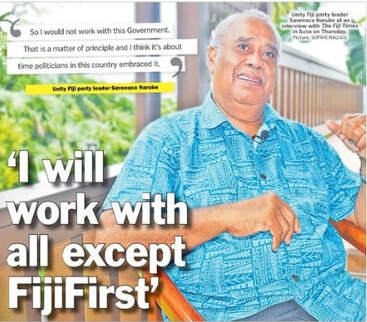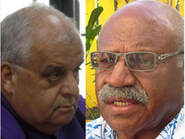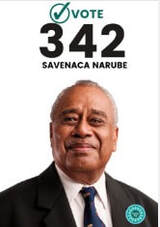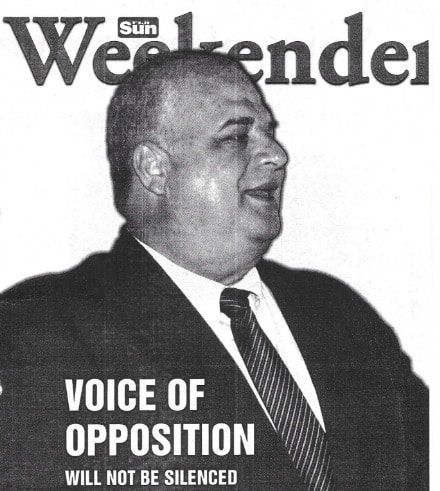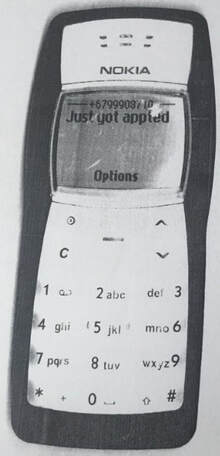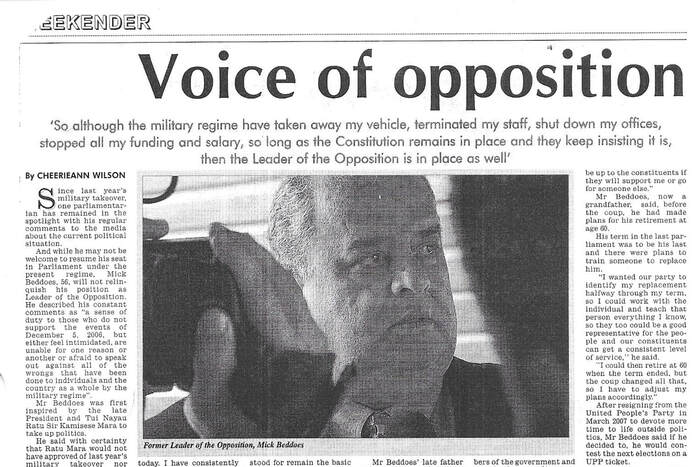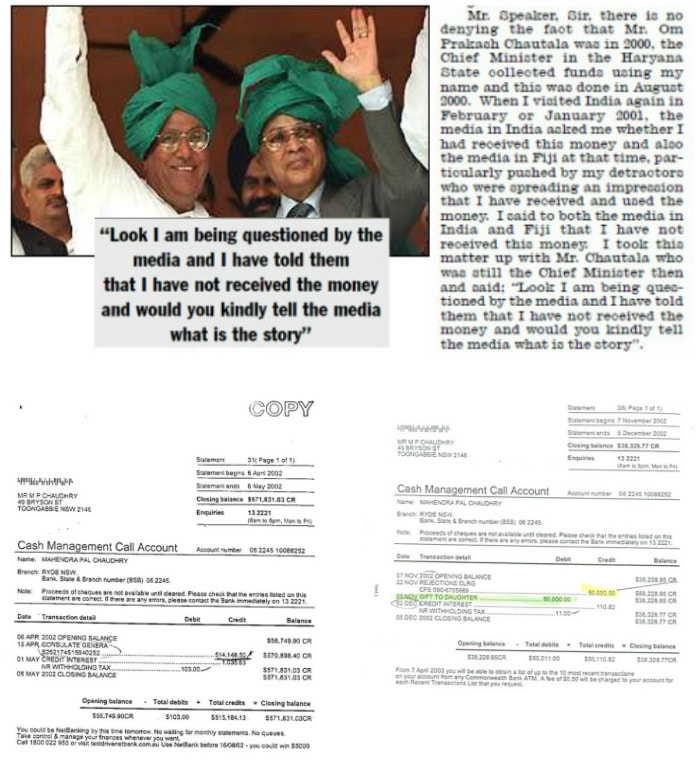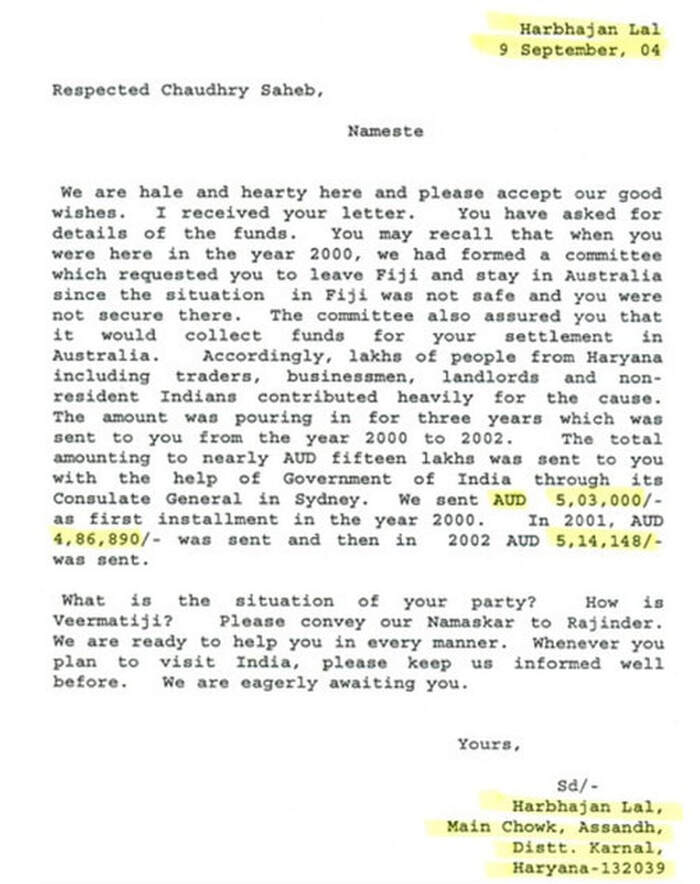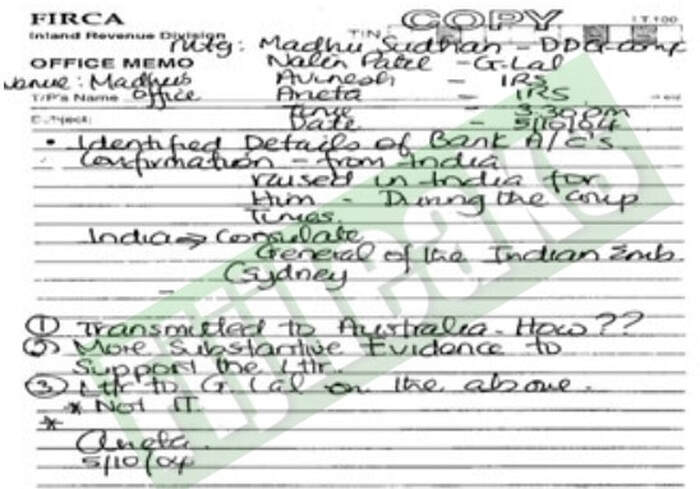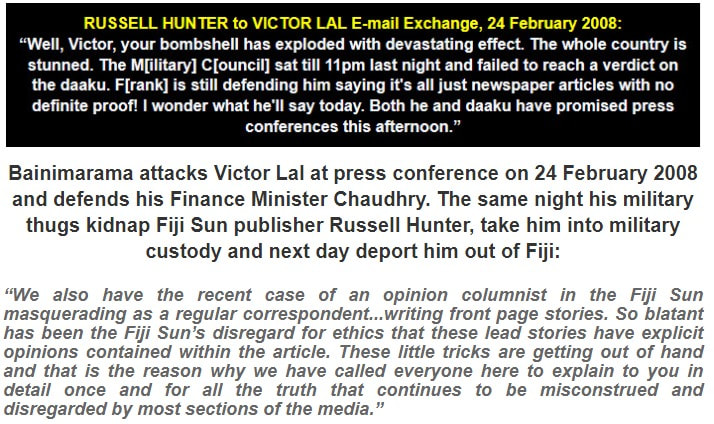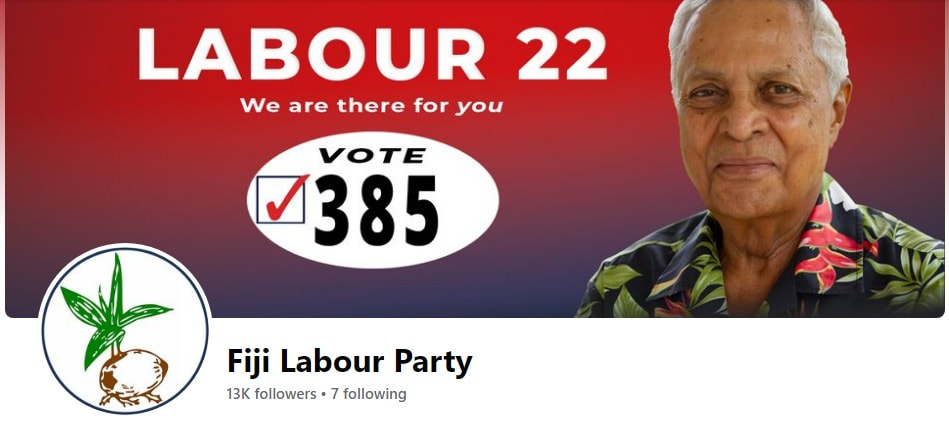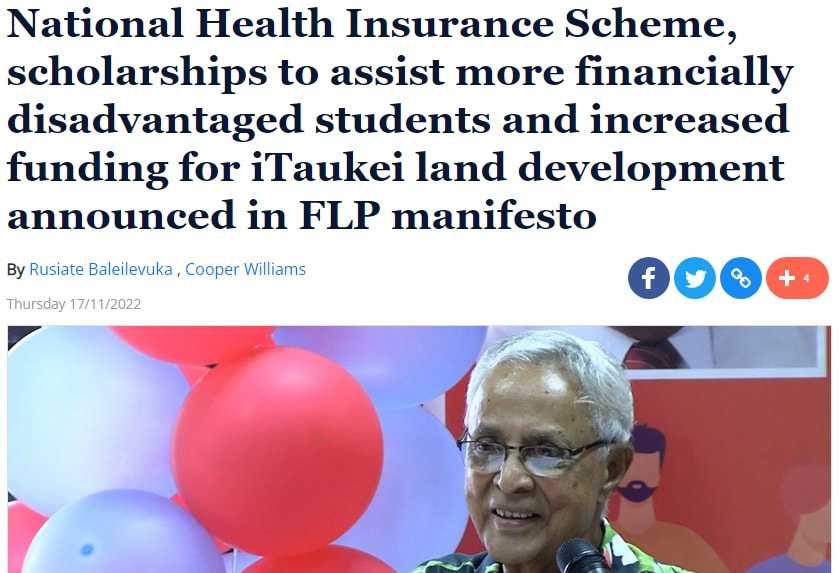
MY APPLICATION TO CONTEST HAD TO BE WITHDRAWN
To all my supporters, friends and family, unfortunately my application had to be withdrawn today due to a delayed delivery by the courier company of my completed original application documents, which I had couriered last week.
I had emailed HQ attaching copies of all the documents contained in the courier as well as the receipt from the courier company. When they submitted my application they were the soft copies I had emailed through last week, which was disallowed.
The original copies of my application documents I sent via courier on Nov 11 2022 were finally delivered to Unity HQ at 1.51pm today.
Obviously, I am very disappointed that this has happened. But as Sir Winston Churchill once said, this is not the end. It is not even the beginning of the end. But it is, perhaps, the end of the beginning.
So I have already started to change my strategy and will move to provide all the support I can for Save Narube and the Unity team as it remains my true belief that Save Narube is the person Fiji desperately needs at the helm of country moving forward and I urge all those who were going to give me their vote to please ‘find the courage, choose democracy and vote for change, and give the vote you planned for me to Save Narube and the Unity team
To all my supporters, friends and family, unfortunately my application had to be withdrawn today due to a delayed delivery by the courier company of my completed original application documents, which I had couriered last week.
I had emailed HQ attaching copies of all the documents contained in the courier as well as the receipt from the courier company. When they submitted my application they were the soft copies I had emailed through last week, which was disallowed.
The original copies of my application documents I sent via courier on Nov 11 2022 were finally delivered to Unity HQ at 1.51pm today.
Obviously, I am very disappointed that this has happened. But as Sir Winston Churchill once said, this is not the end. It is not even the beginning of the end. But it is, perhaps, the end of the beginning.
So I have already started to change my strategy and will move to provide all the support I can for Save Narube and the Unity team as it remains my true belief that Save Narube is the person Fiji desperately needs at the helm of country moving forward and I urge all those who were going to give me their vote to please ‘find the courage, choose democracy and vote for change, and give the vote you planned for me to Save Narube and the Unity team
Fijilleaks: We are still trying to figure out was it his 'Vaka Malua' attitude or other more serious motives that he didn't chase up application status.
In by-gone days, and in the absence of instant communication, he became Opposition Leader in 2006
In 2006, Fijileaks founding Editor-in-Chief was instrumental in persuading the Government House that MICK BEDDOES must be appointed the Leader of the Opposition while the political leaders were wrangling over the ridiculous mandatory power-sharing Cabinet concept in the Rabuka-Reddy 1997 Constitution, a concept that was clearly inserted to ensure SVT-NFP formed the coalition government after the 1999 general election.
Note: Our Founding Editor-in-Chief's widely read regular column in the Fiji Sun that he wrote for decades was banished from the paper (including him as the paper's columnist) after 2008 when he revealed that Coupist Bainimarama's Interim Finance Minister and FLP leader MAHENDRA CHAUDHRY was hiding $2million in Australian bank account
MICK BEDDOES MUST BE APPOINTED LEADER OF THE OPPOSITION

By VICTOR LAL
The dictates of the Constitution [s82(2)] and long established democratic convention requires that ‘The President appoints as Leader of the Opposition, the member of the House of Representatives whose appointment as Leader of the Opposition would, in the opinion of the President, be acceptable to the majority of the members in the House of the Opposition party or parties’.
In order to fulfil the constitutional requirement, the President must ask himself only two simple questions: who is the Opposition, and who is the Government?
In the factual matrix of things as it currently stands, the leader of the United Peoples Party (UPP), Mick Beddoes, is in Opposition, and the leaders of the Soqosoqo Duavata ni Lewenivanua Party (SDL), the Fiji Labour Party (FLP) and the two Independents are in a multi-party Government under subsection 99(3) of the Constitution of Fiji that requires the Prime Minister to establish a multi-party Cabinet in the way set out in that section. The Prime Minister is required by subsection 99(5) to invite all political parties with 10 per cent or more seats in the House of Representatives to be represented in the Cabinet.
Since the leader of the FLP, Mahendra Pal Chaudhry, has voluntarily accepted the Prime Minister Laisenia Qarase’s offer for his elected parliamentarians to be in Cabinet, although he himself has deliberately chosen not to be a part of it, the only person now qualified to constitutionally lead the Opposition in Parliament is Mr Beddoes (unless the UPP appoints Bernadette Rounds-Ganilau as its leader). Simply put, neither Mr Chaudhry nor any of his non Cabinet FLP parliamentarians can be appointed as Leader of the Opposition. Their appointment to the post will be a breach of the Constitution and democratic convention. The President, in appointing Mr Beddoes as Opposition leader, must ignore the likelihood of ‘boycotts and high courts’ on the part of the FLP; for this time he will be simply complying in meeting the requirements of Section 82(2). The President will also be complying with the compact and spirit of the Constitution of Fiji.
Chaudhry and Opposition leadership
On 15 October 2002, the President Ratu Josefa Iloilo wrote to Mr Chaudhry appointing him Leader of the Opposition. ‘Acting in my own deliberate judgement, I have this day appointed you to be the Leader of the Opposition in the House of Representatives of the Parliament of Fiji’. ‘In making this appointment, I am not unaware of the pending court action, which you filed to pursue the rights you claim under Section 99 of the Constitution. I have no doubt that you know what to do when the final outcome of that Court action becomes known’, the letter said.
Mr Chaudhry wrote back on 22 October, after seeking legal advice, declining the appointment. He said he was unable to accept the position because the FLP had exercised its constitutional right to be in the Laisenia Qarase’s SDL-CAM led Coalition Government. Surprisingly, Mr Chaudhry went on to inform the President in the same letter that of the non-FLP members in the House, ‘no one is currently qualified to be credibly appointed as Opposition leader’. As history will attest, two leaders emerged to take up the Opposition leadership: National Federation Party’s Prem Singh and later Mr Beddoes. It was not long before Mr Chaudhry took a swipe at Mr Singh, who in Letters to the Editor had accused the FLP of being tyrants and despots. He described Mr Singh as a one-man band who lacked credibility and legitimacy. Mr Chaudhry said that there were sound reasons for his refusal to accept the office of Opposition leader when the President offered it to him. But Mr Singh was easy meat for he considered not the harmful implications of his acceptance on the Indo-Fijian community.
In March 2003, Mr Chaudhry also criticised the new Opposition leader Mr Beddoes, accusing him of losing objectivity in his (Mr Beddoes) unrelenting but misguided quest to have Ms Ofa Swann of the New Labour Unity Party (NLUP) installed as chairperson of the Public Accounts Committee (PAC). Mr Beddoes, asked Mr Chaudhry, might want to explain why he declined an offer by FLP for him to chair the PAC? Why this compulsive urges to back Ms Swann? Is it because his own business commitments preclude him from taking up the position? While explaining why he was boycotting the Opposition leadership post, ‘because the Prime Minister seems to have scant regard for the Constitution’, Mr Chauhdry told Beddoes that he would do well to accept facts as they stood rather than try and work around it to push a weak case for his own nominee.
The Multi-Party Case and FLP
Without going into detail, the Appeals Court ruled in Mr Chaudhry’s favour that he and his FLP were entitled to proportional representation in Cabinet. But when Mr Qarase invited Mr Chaudhry into Cabinet, he turned it down on the grounds that the portfolios allocated to him were petty, and that there was no need to have a bloated Cabinet of 33 when a Government could be effectively run by a Cabinet of no more than 18. ‘Why do you need 33 people to do a job which can be quite effectively done by half that number?’ He said the portfolios were not offered in good faith.
In November 2004, with one eye on the 2006 general election, Mr Chaudhry suddenly announced that he was taking over the Opposition Leader’s job, and Mr Beddoes gracefully stepped down after performing a sterling job. Mr Chaudhry claimed that he nor his party could be a part of a Government that showed no respect for the Constitution, no respect for the laws of the country, harboured within its ranks elements implicated in the 2000 coups and practised blatant discrimination against half the country’s population on account of their ethnicity.
Ironically, last week, he made a 360 degree political somersault, and accepted that his FLP parliamentarians be a part of the largest Cabinet in Fiji’s history; even sharing power with some SDL Cabinet ministers who had served prison terms for their parts in the 2000 crisis. In other words, he and his party are now a part of the multi-party Cabinet for which he persisted for three years, and had stubbornly refused to assume the Opposition leadership role. He, therefore, cannot be considered for the post of the Leader of the Opposition.
Precedents and Chaudhry
As the nation awaits a decision from the President’s Office, Mr Chauhdry now claims that there's nothing in the Constitution to stop him from becoming the Leader of the Opposition. He says the law allows him and his backbenchers to form an opposition. ‘The Constitution is silent on that and the choice is left to the elected representatives. No one can force them into a particular situation,’ he said. His recently graduated lawyer son, who legally represents the FLP, echoes his father’s statement and sentiment. Firstly, if one examines the issue of the conflict of offices, the FLP have persistently highlighted them during the last term of the Parliament.
In May 2005, Mr Chaudhry objected to the continued presence of Government Ministers in the House of Representatives who had forfeited their membership by taking up public offices. Speaking on a point of order in Parliament, he said the former Education Minister Ro Teimumu Kepa and Trade Minister Tom Veutilovoni had taken up the chair of Rewa and Ra Provincial Councils respectively and under the Constitution had ceased to be Members of Parliament. He said according to Articles 71 (1) b of the Constitution the two by taking up the Provincial appointments had lost their respective places as MPs.
Treating Mr Chauhdry by the same yardstick, and now that his FLP has joined a multi-party Cabinet, Mr Chaudhry cannot be appointed as Leader of the Opposition. We had earlier recalled Mr Chaudhry’s attack on Mr Beddoes over the PAC. In that attack, he had raised an important constitutional issue, which is now directly relevant to his own case. Mr Chaudhry had asserted that Ms Swann was deemed to be an SDL-CAM Coalition Government member by virtue of Kenneth Zinck’s Ministerial position in the SDL government. Ms Swann’s NLUP had not taken any concrete action, he claimed, to have the matter of its legal status in Parliament rectified after it lost its case against Mr Zinck’s purported expulsion from the party. So, Ms Swann, could not be recognised as an Opposition MP, said Mr Chaudhry.
More importantly, both the Constitution and the Korolevu Declaration, he claimed, are clear that a party, which is part of a Government, cannot have members in Opposition. Applying the same test to Mr Chaudhry’s own FLP, he therefore, cannot claim that he is still in the Opposition, and that he is still the Leader of the Opposition. Like Mr Zinck, Mr Chaudhry has voluntarily sent nine of his MPs to be a part of Mr Qarase’s multi-party Cabinet.
The Korolevu Declaration
The Korolevu Declaration, signed after the 1997 Constitution came into force, clearly says that any party, which joins a multi-party Cabinet, cannot be part of the Opposition. In his quest to remain the Leader of the Opposition, Mr Chaudhry now says that Qarase rejected that agreement in 2001 when he didn't let Labour into the multi-party Cabinet. Here, Mr Chaudhry and his legal team, however, are clearly being economical with the truth.
On 10 September 2001, the newly elected Prime Minister Qarase invited Mr Chaudhry, as the leader of the second largest party, to join the multi-party Cabinet as required by the Constitution but made it clear that, ‘we think you might be happier in Opposition’. In other words, Mr Qarase wanted Mr Chaudhry to assume the mantle of Opposition leadership. Meanwhile, in response to Qarase’s letter, the FLP accepted Mr Qarase’s offer in accordance with the provisions of the Constitution, and surprisingly, with that of the Korolevu Declaration (Parliamentary Paper No 15 of 1999). In a follow-up letter on the same day Mr Chaudhry, while accepting to be in Government, categorically informed Qarase that ‘my party’s participation in Cabinet and in government will be in accordance with the provisions of the Constitution and with that of the Korolevu Declaration – Parliamentary Paper No 15 of 1999’.
Mr Chaudhry also reminded Mr Qarase of Clause 4 of the Declaration, notably the manner in which the Cabinet conducts its business. These are (a) Cabinet decision making in Government be on a consensus seeking basis, especially with regard to key issues and policies; (b) Parties represented in the Cabinet may express and record independent views on the Cabinet but Members of the Cabinet must comply with the principles of collective responsibility; (c) Consensus seeking mechanisms in Cabinet should include the formulation of a broadly acceptable framework, the establishment of Cabinet committees to examine any major disagreements on policy issues, and the establishment of flexible rules governing communication by ministers to their respective party caucuses.
Replying, Mr Qarase expressed disappointment that Mr Chaudhry had not expressly accepted the basic condition he had set out in his letter that the policies of his Cabinet would be based fundamentally on the policy manifesto of the SDL. He also pointed out to Mr Chaudhry that the ‘Korolevu Declaration’ was a political and not a constitutional document. It was not an enactment of Parliament. His SDL was not a signatory to this political agreement and was, therefore, not bound by it. In any case, Cabinet procedures are set out in the Manual of Cabinet Procedures. Mr Qarase also reminded Mr Chaudhry of his (Mr Chaudhry’s) statements to the press, in which Mr Chaudhry was reported to have said that ‘the parties’ (FLP and SDL) ideological differences made them unlikely partners’.
In his letter to the President, Mr Chaudhry however insisted that he laid down absolutely no conditions to the acceptance of Mr Qarase’s invitation to the FLP to be represented in Cabinet. Similarly, the Korolevu Declaration, Mr Chaudhry insisted, could not be interpreted as stipulating a condition to the acceptance of Mr Qarase’s invitation. The procedure for establishing a multi-party Cabinet, he insisted, is laid down in Section 99 of the Constitution. As is to be expected, ‘the Constitution does not provide the finer details of how the proportionate number of Cabinet seats is to be determined, how cabinet portfolios are to be allocated or how significant differences on policy matter are to be resolved in a multi-party government. These are matters for discussion/consultation.’
The Korolevu Declaration, Mr Chaudhry claimed, was subsequently endorsed by Parliament as Parliamentary Paper 15/99. The procedures, practices and recommendations therein were applicable in the event of a dispute or disagreement between the political parties on any subject covered in the Declaration. The fact that the SDL was not a signatory to that document was of no significance in its application. The Korolevu Declaration, he claimed, had established a practice, which was agreed to by all political parties at the time and successfully used in establishing a multi-party government following the 1999 general elections. It, therefore, follows now in 2006 that Mr Chaudhry, who was a signatory to the Korolevu Declaration, must accept that any party, which joins a multi-party Cabinet, cannot be part of the Opposition. By extension, he himself cannot be entitled to be in Cabinet as well as to act as the official Leader of the Opposition in Parliament.
In President’s Deliberate Judgment.
In appointing the new Leader of the Opposition, the President Ratu Iloilo must exercise his own deliberate judgment. It is his prerogative at the end of the day. Firstly, one of the contenders, Mr Beddoes has confirmed that he is available for consideration, and most importantly, he has already told the President’s Office that his UPP had declined to join the FLP in the multi-party Government and opted to stay in Opposition.
Secondly, the President must take into account his letter of appointment of 15 October 2002, in which he had unilaterally appointed Mr Chaudhry, but which Mr Chaudhry had declined. He had cited that since he had initiated court proceedings, he was not willing to accept the President’s decision or appointment. Now, in 2006, the FLP has again served notice that it intents to challenge the results of certain seats. The FLP is also calling on the Government to set up a commission of inquiry into irregularities in the recent general elections. Mrs Lavenia Padarath, who narrowly lost the Nausori/Naitasiri Open seat, says it makes her question the credibility of international election observers when they say the elections were free and fair. She says the observers only say that because they did not witness any violence and bloodshed.
The FLP has prepared an eight-page list of what it says were election irregularities and sent it to more than 20 organisations and individuals including foreign diplomatic missions in Suva. The letter alleges that the Elections Office conspired with some returning officers to commit serious acts of election irregularities to ensure an SDL victory. Acting on the following facts, the President would be unwise to reappoint Mr Chaudhry, in the event that he again declines the appointment, on the grounds that as far as the FLP is concerned, the general election was not free and fair, and the matter is before the courts. The President would also be sending a powerful signal to future aspiring political leaders that you couldn’t have your political cake and eat it at the same time.
In this particular instance, it is my considered legal and personal opinion that the only person entitled to be the next Leader of Opposition is Mr Beddoes of the United Peoples Party. He has the constitutional right to occupy the Leader of the Opposition’s office and Opposition leader’s desk in Parliament.
And if the nine FLP Cabinet ministers stage a walkout in support of their political master, they should be welcomed to do so at their own political peril. For the nation had limped on without a multi-party Cabinet for the last five years. And under the Mr Qarase led SDL government. The nation did not miss Mr Chaudhry for three years as Leader of the Opposition. We did not miss him because Mr Beddoes did sterling job, and service, to the nation in her greatest hour of need following the 2000 upheaval.
He is entitled to shine again. To paraphrase Mr Chaudhry’s advice to Mr Beddoes, he ‘would do well to accept facts as they stood rather than try and work around it to push a weak case for his own nominee’. In Mr Chaudhry’s case, his own nomination for the Opposition leader’s job.
In any event, the Prime Minister has not ruled out the possibility of Mr Chaudhry joining the multi party Cabinet in the next five years. He said that Mr Chaudhry made the decision himself that he did not want to be part of the Cabinet. He hopes things will change as the SDL and FLP ministers work together in the multi party Cabinet.
As for the President’s decision, the term ‘In his own deliberate judgment’ means that he is not obliged to take advice from anyone. Regarded the other way, the President is able to select as Leader of Opposition who he wishes to have’.
But in this instance, it has to be Mr Mick Beddoes, constitutionally speaking. For Mr Chaudhry deliberately chose not to enter Cabinet, forfeiting his constitutional right under Section 99 of the Constitution. His party is also a signatory to the Korolevu Declaration.
The dictates of the Constitution [s82(2)] and long established democratic convention requires that ‘The President appoints as Leader of the Opposition, the member of the House of Representatives whose appointment as Leader of the Opposition would, in the opinion of the President, be acceptable to the majority of the members in the House of the Opposition party or parties’.
In order to fulfil the constitutional requirement, the President must ask himself only two simple questions: who is the Opposition, and who is the Government?
In the factual matrix of things as it currently stands, the leader of the United Peoples Party (UPP), Mick Beddoes, is in Opposition, and the leaders of the Soqosoqo Duavata ni Lewenivanua Party (SDL), the Fiji Labour Party (FLP) and the two Independents are in a multi-party Government under subsection 99(3) of the Constitution of Fiji that requires the Prime Minister to establish a multi-party Cabinet in the way set out in that section. The Prime Minister is required by subsection 99(5) to invite all political parties with 10 per cent or more seats in the House of Representatives to be represented in the Cabinet.
Since the leader of the FLP, Mahendra Pal Chaudhry, has voluntarily accepted the Prime Minister Laisenia Qarase’s offer for his elected parliamentarians to be in Cabinet, although he himself has deliberately chosen not to be a part of it, the only person now qualified to constitutionally lead the Opposition in Parliament is Mr Beddoes (unless the UPP appoints Bernadette Rounds-Ganilau as its leader). Simply put, neither Mr Chaudhry nor any of his non Cabinet FLP parliamentarians can be appointed as Leader of the Opposition. Their appointment to the post will be a breach of the Constitution and democratic convention. The President, in appointing Mr Beddoes as Opposition leader, must ignore the likelihood of ‘boycotts and high courts’ on the part of the FLP; for this time he will be simply complying in meeting the requirements of Section 82(2). The President will also be complying with the compact and spirit of the Constitution of Fiji.
Chaudhry and Opposition leadership
On 15 October 2002, the President Ratu Josefa Iloilo wrote to Mr Chaudhry appointing him Leader of the Opposition. ‘Acting in my own deliberate judgement, I have this day appointed you to be the Leader of the Opposition in the House of Representatives of the Parliament of Fiji’. ‘In making this appointment, I am not unaware of the pending court action, which you filed to pursue the rights you claim under Section 99 of the Constitution. I have no doubt that you know what to do when the final outcome of that Court action becomes known’, the letter said.
Mr Chaudhry wrote back on 22 October, after seeking legal advice, declining the appointment. He said he was unable to accept the position because the FLP had exercised its constitutional right to be in the Laisenia Qarase’s SDL-CAM led Coalition Government. Surprisingly, Mr Chaudhry went on to inform the President in the same letter that of the non-FLP members in the House, ‘no one is currently qualified to be credibly appointed as Opposition leader’. As history will attest, two leaders emerged to take up the Opposition leadership: National Federation Party’s Prem Singh and later Mr Beddoes. It was not long before Mr Chaudhry took a swipe at Mr Singh, who in Letters to the Editor had accused the FLP of being tyrants and despots. He described Mr Singh as a one-man band who lacked credibility and legitimacy. Mr Chaudhry said that there were sound reasons for his refusal to accept the office of Opposition leader when the President offered it to him. But Mr Singh was easy meat for he considered not the harmful implications of his acceptance on the Indo-Fijian community.
In March 2003, Mr Chaudhry also criticised the new Opposition leader Mr Beddoes, accusing him of losing objectivity in his (Mr Beddoes) unrelenting but misguided quest to have Ms Ofa Swann of the New Labour Unity Party (NLUP) installed as chairperson of the Public Accounts Committee (PAC). Mr Beddoes, asked Mr Chaudhry, might want to explain why he declined an offer by FLP for him to chair the PAC? Why this compulsive urges to back Ms Swann? Is it because his own business commitments preclude him from taking up the position? While explaining why he was boycotting the Opposition leadership post, ‘because the Prime Minister seems to have scant regard for the Constitution’, Mr Chauhdry told Beddoes that he would do well to accept facts as they stood rather than try and work around it to push a weak case for his own nominee.
The Multi-Party Case and FLP
Without going into detail, the Appeals Court ruled in Mr Chaudhry’s favour that he and his FLP were entitled to proportional representation in Cabinet. But when Mr Qarase invited Mr Chaudhry into Cabinet, he turned it down on the grounds that the portfolios allocated to him were petty, and that there was no need to have a bloated Cabinet of 33 when a Government could be effectively run by a Cabinet of no more than 18. ‘Why do you need 33 people to do a job which can be quite effectively done by half that number?’ He said the portfolios were not offered in good faith.
In November 2004, with one eye on the 2006 general election, Mr Chaudhry suddenly announced that he was taking over the Opposition Leader’s job, and Mr Beddoes gracefully stepped down after performing a sterling job. Mr Chaudhry claimed that he nor his party could be a part of a Government that showed no respect for the Constitution, no respect for the laws of the country, harboured within its ranks elements implicated in the 2000 coups and practised blatant discrimination against half the country’s population on account of their ethnicity.
Ironically, last week, he made a 360 degree political somersault, and accepted that his FLP parliamentarians be a part of the largest Cabinet in Fiji’s history; even sharing power with some SDL Cabinet ministers who had served prison terms for their parts in the 2000 crisis. In other words, he and his party are now a part of the multi-party Cabinet for which he persisted for three years, and had stubbornly refused to assume the Opposition leadership role. He, therefore, cannot be considered for the post of the Leader of the Opposition.
Precedents and Chaudhry
As the nation awaits a decision from the President’s Office, Mr Chauhdry now claims that there's nothing in the Constitution to stop him from becoming the Leader of the Opposition. He says the law allows him and his backbenchers to form an opposition. ‘The Constitution is silent on that and the choice is left to the elected representatives. No one can force them into a particular situation,’ he said. His recently graduated lawyer son, who legally represents the FLP, echoes his father’s statement and sentiment. Firstly, if one examines the issue of the conflict of offices, the FLP have persistently highlighted them during the last term of the Parliament.
In May 2005, Mr Chaudhry objected to the continued presence of Government Ministers in the House of Representatives who had forfeited their membership by taking up public offices. Speaking on a point of order in Parliament, he said the former Education Minister Ro Teimumu Kepa and Trade Minister Tom Veutilovoni had taken up the chair of Rewa and Ra Provincial Councils respectively and under the Constitution had ceased to be Members of Parliament. He said according to Articles 71 (1) b of the Constitution the two by taking up the Provincial appointments had lost their respective places as MPs.
Treating Mr Chauhdry by the same yardstick, and now that his FLP has joined a multi-party Cabinet, Mr Chaudhry cannot be appointed as Leader of the Opposition. We had earlier recalled Mr Chaudhry’s attack on Mr Beddoes over the PAC. In that attack, he had raised an important constitutional issue, which is now directly relevant to his own case. Mr Chaudhry had asserted that Ms Swann was deemed to be an SDL-CAM Coalition Government member by virtue of Kenneth Zinck’s Ministerial position in the SDL government. Ms Swann’s NLUP had not taken any concrete action, he claimed, to have the matter of its legal status in Parliament rectified after it lost its case against Mr Zinck’s purported expulsion from the party. So, Ms Swann, could not be recognised as an Opposition MP, said Mr Chaudhry.
More importantly, both the Constitution and the Korolevu Declaration, he claimed, are clear that a party, which is part of a Government, cannot have members in Opposition. Applying the same test to Mr Chaudhry’s own FLP, he therefore, cannot claim that he is still in the Opposition, and that he is still the Leader of the Opposition. Like Mr Zinck, Mr Chaudhry has voluntarily sent nine of his MPs to be a part of Mr Qarase’s multi-party Cabinet.
The Korolevu Declaration
The Korolevu Declaration, signed after the 1997 Constitution came into force, clearly says that any party, which joins a multi-party Cabinet, cannot be part of the Opposition. In his quest to remain the Leader of the Opposition, Mr Chaudhry now says that Qarase rejected that agreement in 2001 when he didn't let Labour into the multi-party Cabinet. Here, Mr Chaudhry and his legal team, however, are clearly being economical with the truth.
On 10 September 2001, the newly elected Prime Minister Qarase invited Mr Chaudhry, as the leader of the second largest party, to join the multi-party Cabinet as required by the Constitution but made it clear that, ‘we think you might be happier in Opposition’. In other words, Mr Qarase wanted Mr Chaudhry to assume the mantle of Opposition leadership. Meanwhile, in response to Qarase’s letter, the FLP accepted Mr Qarase’s offer in accordance with the provisions of the Constitution, and surprisingly, with that of the Korolevu Declaration (Parliamentary Paper No 15 of 1999). In a follow-up letter on the same day Mr Chaudhry, while accepting to be in Government, categorically informed Qarase that ‘my party’s participation in Cabinet and in government will be in accordance with the provisions of the Constitution and with that of the Korolevu Declaration – Parliamentary Paper No 15 of 1999’.
Mr Chaudhry also reminded Mr Qarase of Clause 4 of the Declaration, notably the manner in which the Cabinet conducts its business. These are (a) Cabinet decision making in Government be on a consensus seeking basis, especially with regard to key issues and policies; (b) Parties represented in the Cabinet may express and record independent views on the Cabinet but Members of the Cabinet must comply with the principles of collective responsibility; (c) Consensus seeking mechanisms in Cabinet should include the formulation of a broadly acceptable framework, the establishment of Cabinet committees to examine any major disagreements on policy issues, and the establishment of flexible rules governing communication by ministers to their respective party caucuses.
Replying, Mr Qarase expressed disappointment that Mr Chaudhry had not expressly accepted the basic condition he had set out in his letter that the policies of his Cabinet would be based fundamentally on the policy manifesto of the SDL. He also pointed out to Mr Chaudhry that the ‘Korolevu Declaration’ was a political and not a constitutional document. It was not an enactment of Parliament. His SDL was not a signatory to this political agreement and was, therefore, not bound by it. In any case, Cabinet procedures are set out in the Manual of Cabinet Procedures. Mr Qarase also reminded Mr Chaudhry of his (Mr Chaudhry’s) statements to the press, in which Mr Chaudhry was reported to have said that ‘the parties’ (FLP and SDL) ideological differences made them unlikely partners’.
In his letter to the President, Mr Chaudhry however insisted that he laid down absolutely no conditions to the acceptance of Mr Qarase’s invitation to the FLP to be represented in Cabinet. Similarly, the Korolevu Declaration, Mr Chaudhry insisted, could not be interpreted as stipulating a condition to the acceptance of Mr Qarase’s invitation. The procedure for establishing a multi-party Cabinet, he insisted, is laid down in Section 99 of the Constitution. As is to be expected, ‘the Constitution does not provide the finer details of how the proportionate number of Cabinet seats is to be determined, how cabinet portfolios are to be allocated or how significant differences on policy matter are to be resolved in a multi-party government. These are matters for discussion/consultation.’
The Korolevu Declaration, Mr Chaudhry claimed, was subsequently endorsed by Parliament as Parliamentary Paper 15/99. The procedures, practices and recommendations therein were applicable in the event of a dispute or disagreement between the political parties on any subject covered in the Declaration. The fact that the SDL was not a signatory to that document was of no significance in its application. The Korolevu Declaration, he claimed, had established a practice, which was agreed to by all political parties at the time and successfully used in establishing a multi-party government following the 1999 general elections. It, therefore, follows now in 2006 that Mr Chaudhry, who was a signatory to the Korolevu Declaration, must accept that any party, which joins a multi-party Cabinet, cannot be part of the Opposition. By extension, he himself cannot be entitled to be in Cabinet as well as to act as the official Leader of the Opposition in Parliament.
In President’s Deliberate Judgment.
In appointing the new Leader of the Opposition, the President Ratu Iloilo must exercise his own deliberate judgment. It is his prerogative at the end of the day. Firstly, one of the contenders, Mr Beddoes has confirmed that he is available for consideration, and most importantly, he has already told the President’s Office that his UPP had declined to join the FLP in the multi-party Government and opted to stay in Opposition.
Secondly, the President must take into account his letter of appointment of 15 October 2002, in which he had unilaterally appointed Mr Chaudhry, but which Mr Chaudhry had declined. He had cited that since he had initiated court proceedings, he was not willing to accept the President’s decision or appointment. Now, in 2006, the FLP has again served notice that it intents to challenge the results of certain seats. The FLP is also calling on the Government to set up a commission of inquiry into irregularities in the recent general elections. Mrs Lavenia Padarath, who narrowly lost the Nausori/Naitasiri Open seat, says it makes her question the credibility of international election observers when they say the elections were free and fair. She says the observers only say that because they did not witness any violence and bloodshed.
The FLP has prepared an eight-page list of what it says were election irregularities and sent it to more than 20 organisations and individuals including foreign diplomatic missions in Suva. The letter alleges that the Elections Office conspired with some returning officers to commit serious acts of election irregularities to ensure an SDL victory. Acting on the following facts, the President would be unwise to reappoint Mr Chaudhry, in the event that he again declines the appointment, on the grounds that as far as the FLP is concerned, the general election was not free and fair, and the matter is before the courts. The President would also be sending a powerful signal to future aspiring political leaders that you couldn’t have your political cake and eat it at the same time.
In this particular instance, it is my considered legal and personal opinion that the only person entitled to be the next Leader of Opposition is Mr Beddoes of the United Peoples Party. He has the constitutional right to occupy the Leader of the Opposition’s office and Opposition leader’s desk in Parliament.
And if the nine FLP Cabinet ministers stage a walkout in support of their political master, they should be welcomed to do so at their own political peril. For the nation had limped on without a multi-party Cabinet for the last five years. And under the Mr Qarase led SDL government. The nation did not miss Mr Chaudhry for three years as Leader of the Opposition. We did not miss him because Mr Beddoes did sterling job, and service, to the nation in her greatest hour of need following the 2000 upheaval.
He is entitled to shine again. To paraphrase Mr Chaudhry’s advice to Mr Beddoes, he ‘would do well to accept facts as they stood rather than try and work around it to push a weak case for his own nominee’. In Mr Chaudhry’s case, his own nomination for the Opposition leader’s job.
In any event, the Prime Minister has not ruled out the possibility of Mr Chaudhry joining the multi party Cabinet in the next five years. He said that Mr Chaudhry made the decision himself that he did not want to be part of the Cabinet. He hopes things will change as the SDL and FLP ministers work together in the multi party Cabinet.
As for the President’s decision, the term ‘In his own deliberate judgment’ means that he is not obliged to take advice from anyone. Regarded the other way, the President is able to select as Leader of Opposition who he wishes to have’.
But in this instance, it has to be Mr Mick Beddoes, constitutionally speaking. For Mr Chaudhry deliberately chose not to enter Cabinet, forfeiting his constitutional right under Section 99 of the Constitution. His party is also a signatory to the Korolevu Declaration.
"Again according to the judgment of Goundar J. at para 7 the issue of these funds was raised in parliament on the 2nd December 2005 by the then Prime Minister, Laisenia Qarase. The public record of proceedings "Hansard" which was before me with an affidavit for interlocutory proceedings reveals that MPC vehemently denied the existence of the monies. Such disdain for the gift and its purpose and such deceit in hiding its existence for so long from the authorities can only be an aggravating factor in this sentence."
Justice Paul Madigan, 2 May 2014
Fijileaks: In 2005, at the last-minute Qarase had balked, and had asked our Founding Editor-in-Chief to reveal the documentary evidence our Editor had on him in the Fiji Sun instead, which on publication, in 2008, saw the abduction, torture, and deportation of the late RUSSELL HUNTER out of Fiji as the Fiji Sun Publisher. He was banned for life from entering Fiji
" From the eventual admission to FRCA of the existence of the monies until today, the accused has shown not a shred of remorse for his breaches and appears to have been in a state of denial since 2008 that he could perhaps be in breach of the E.C.A. This is despite the advice he has received of possible breach from respected Fijian law practitioners and from eminent senior counsel in both Australia and New Zealand. Such lack of remorse and dogged interlocutory attempts to derail proceedings and to "shop" for a more "pliant" judge must also be an aggravating factor.
The Court cannot accept the defence submission that this is but a "technical" breach and of very insignificant culpability. It is a wilful and determined breach of the Act in spite of warnings and advice and a breach that the accused allowed to continue over a period of years. A technical breach might perhaps be committed by a new immigrant to Fiji who has left unforgotten a current bank account in Hong Kong with a few hundred dollars to its credit. Technically abreach but with no intention to defeat the revenue or to continue to do so.
Nor is the breach insignificant. It has been the retention of a very large sum of money in Fiji terms over a long period and for some of that period intentionally concealed. The degree of culpability if anything must be medium to high.
Justice Paul Madigan, sentencing FLP leader Chaudhry, 2 May 2014
The Court cannot accept the defence submission that this is but a "technical" breach and of very insignificant culpability. It is a wilful and determined breach of the Act in spite of warnings and advice and a breach that the accused allowed to continue over a period of years. A technical breach might perhaps be committed by a new immigrant to Fiji who has left unforgotten a current bank account in Hong Kong with a few hundred dollars to its credit. Technically abreach but with no intention to defeat the revenue or to continue to do so.
Nor is the breach insignificant. It has been the retention of a very large sum of money in Fiji terms over a long period and for some of that period intentionally concealed. The degree of culpability if anything must be medium to high.
Justice Paul Madigan, sentencing FLP leader Chaudhry, 2 May 2014
Fiji Court of Appeal upholds Conviction, 14 August 2014:
* We reduce the fine by $1,000,000 Fijian Dollars so that the fine imposed on the Appellant would be $1,000,000 Fijian Dollars.
*We do not wish to interfere with the sentence in any other respect and affirm the conviction and the other orders in the sentence subject to the variation of the order relating to the imposition of the fine which we have reduced by $1,000,000 Fijian Dollars and dismiss the appeal.
Orders of Court:
(1) The conviction of the Appellant is affirmed.
(2) The fine imposed on the Appellant is $1,000,000 Fijian Dollars.
(3) The other orders in the sentence order are affirmed.
(4) The Appeal is dismissed subject to the variation in the fine.
Hon. Justice S. Chandra
JUSTICE OF APPEAL
Hon. Justice S. Temo
JUSTICE OF APPEAL
Hon. Justice C. Kotigalage
JUSTICE OF APPEAL
*We do not wish to interfere with the sentence in any other respect and affirm the conviction and the other orders in the sentence subject to the variation of the order relating to the imposition of the fine which we have reduced by $1,000,000 Fijian Dollars and dismiss the appeal.
Orders of Court:
(1) The conviction of the Appellant is affirmed.
(2) The fine imposed on the Appellant is $1,000,000 Fijian Dollars.
(3) The other orders in the sentence order are affirmed.
(4) The Appeal is dismissed subject to the variation in the fine.
Hon. Justice S. Chandra
JUSTICE OF APPEAL
Hon. Justice S. Temo
JUSTICE OF APPEAL
Hon. Justice C. Kotigalage
JUSTICE OF APPEAL
